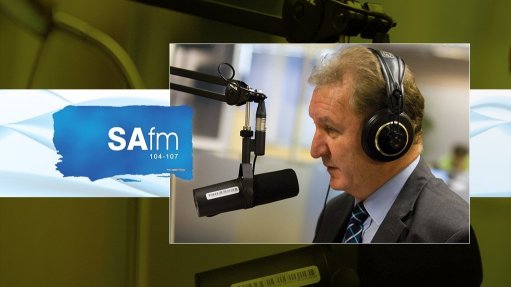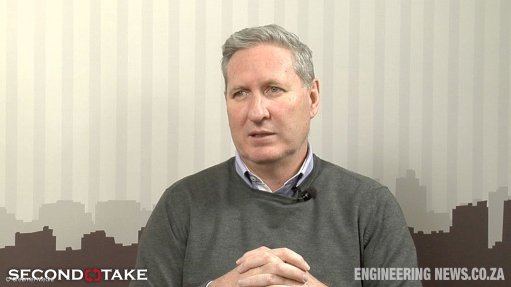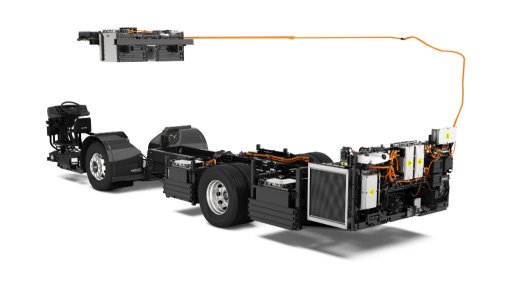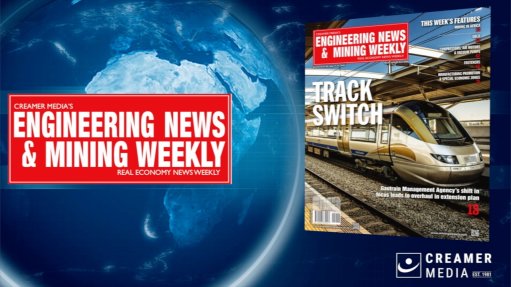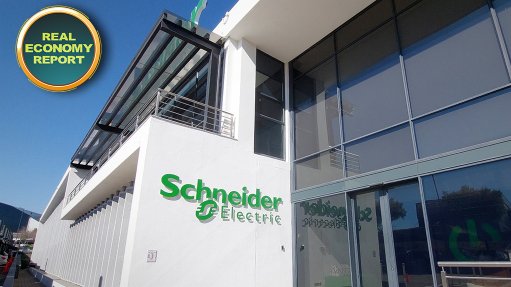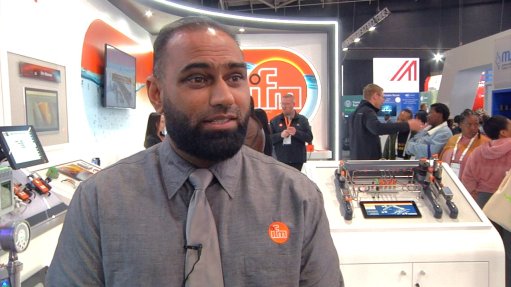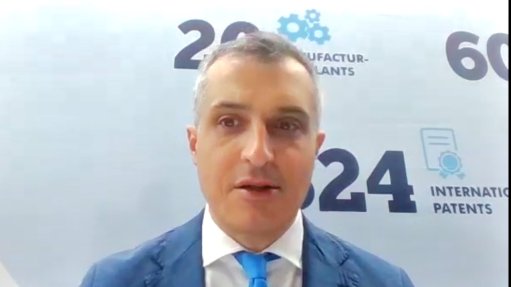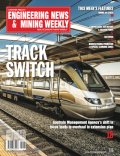Luxembourg Protocol can save South Africa billions – Rail Working Group
The adoption of the Luxembourg Rail Protocol to the Cape Town Convention on International Interests in Mobile Equipment is expected to be a game changer for South Africa, said Rail Working Group chairperson Howard Rosen on Thursday.
The treaty, which is expected to enter into force late in 2019, can open doors and is considered a significant tool in reviving the South African rail industry.
Speaking at the Rail Road Association (RRA) annual general meeting, in Johannesburg, he outlined how the Protocol can bring South Africa microeconomic savings of some $1.5-billion, pave the way for secured private investment inflows and change the way rolling stock is financed in the future.
This will open the door to cheaper financing, expose new capital sources and unlock new ways of doing business that will bolster critically needed rail infrastructure across South Africa and the rest of the continent.
The benefits for South Africa, and its African peers, will be easier distribution, new export markets, new business opportunities and more jobs and skills, along with the sustainable development of a lucrative railway industry.
An industry that decades ago was considered a sunset sector is again emerging as a sunrise industry able to grow African economies through intra Africa trade and bring it in line with international standards.
However, Africa in its entirety requires more railways to ensure sustainable development, particularly as very few African cities are connected with each other, limiting the trade potential between major hubs.
"Growth and intra-continental free trade in Africa is being held back by a lack of proper integrated railway system," he explained.
Existing railway infrastructure and rolling stock in many African countries is suboptimal.
He explained that, currently, there is 1.53 km of rail for every 1 000 km2 of land, compared with 4.43 km for Asia, 4.99 km for Latin America and 8.45 km for Europe.
Further, Africa's percentage of intra-regional trade, at 15%, is well below that of North America's 48%, Asia's 58% and Europe's intratrade of 67%.
Taking a major step in rectifying this, the African Continental Free Trade Area was launched in March 2018 to boost intra-regional and international trade.
The development of an integrated railway system will significantly boost the progress of these ambitions, but it requires private sector participation and billions of dollars in investment.
"The African rail sector sector clearly requires significant investment in infrastructure, facilities and rolling stock. The costs involved are enormous," Rosen commented.
He cited the costs of $475-million for the recently commissioned 34 km Addis Ababa light rail transit; a $4-billion bill for the Ethiopia to Djibouti line renovation; Morocco's $2.4-billion new high speed rail project; and the $4-billion Mombasa to Nairobi standard guage line.
The cost of converting South Africa's 20 000 km cape guage rail track to standard guage is estimated at $110-billion.
"Some of the costs can be covered through concessional lending, but this is limited. Governments are unable or unwilling to take on more debt. So the solution has to be to bring in the private sector to provide innovative financing and expertise," he pointed out.
However, private investors will not invest unless there is security in the assets. There is currently no international title or security registry for rolling stock, no common identification system, limited rules on creditor repossession on debtor default or insolvency and a conflict of laws and cross-border risks.
Rosen believes that the adoption of the Luxembourg Protocol will provide the protection the private sector requires.
The Protocol, the new worldwide legal framework to recognize and regulate the security interests of the lenders, opens up risk-sharing between the public and private sectors, delivers governments a ready-made legal solution to attracting private investors and creates a common African regime that secures private creditors financing railway equipment.
The treaty, already adopted by 79 states, is a global system of international rights and priorities for secured creditors, establishes a common system for enforcing creditor rights on debtor default or insolvency and has a public registry of security interests.
For South Africa, Rosen said, its implementation will remove a significant financial burden from government; liberate public and private sector operators to obtain private sector finance for rolling stock; open up non recourse private financing of existing fleets; and lower the barriers to entry for new operators and entreprenuers.
The Protocol will further ensure railways are more transparent, commercial and competitive; will protect operators and financiers where rolling stock operates across jurisdictional borders and will be a key driver in the shift from road to rail.
It is hoped that South Africa will become a signatory within the next few weeks, Rosen added, encouraging the country to follow through with a ratification.
The Protocol has been ratified by the European Union, Luxembourg, Sweden and Gabon. France, Germany, Switzerland, Mozambique, Italy and the UK have signed the treaty, proceeding to ratification.
South Africa, Mauritius, Ukraine, Finland and Malta are actively focused on adopting the Protocol, while Kenya, Senegal and Burkino Faso are working to ratify.
China, Spain and Hungary have launched studies into its adoption.
Comments
Press Office
Announcements
What's On
Subscribe to improve your user experience...
Option 1 (equivalent of R125 a month):
Receive a weekly copy of Creamer Media's Engineering News & Mining Weekly magazine
(print copy for those in South Africa and e-magazine for those outside of South Africa)
Receive daily email newsletters
Access to full search results
Access archive of magazine back copies
Access to Projects in Progress
Access to ONE Research Report of your choice in PDF format
Option 2 (equivalent of R375 a month):
All benefits from Option 1
PLUS
Access to Creamer Media's Research Channel Africa for ALL Research Reports, in PDF format, on various industrial and mining sectors
including Electricity; Water; Energy Transition; Hydrogen; Roads, Rail and Ports; Coal; Gold; Platinum; Battery Metals; etc.
Already a subscriber?
Forgotten your password?
Receive weekly copy of Creamer Media's Engineering News & Mining Weekly magazine (print copy for those in South Africa and e-magazine for those outside of South Africa)
➕
Recieve daily email newsletters
➕
Access to full search results
➕
Access archive of magazine back copies
➕
Access to Projects in Progress
➕
Access to ONE Research Report of your choice in PDF format
RESEARCH CHANNEL AFRICA
R4500 (equivalent of R375 a month)
SUBSCRIBEAll benefits from Option 1
➕
Access to Creamer Media's Research Channel Africa for ALL Research Reports on various industrial and mining sectors, in PDF format, including on:
Electricity
➕
Water
➕
Energy Transition
➕
Hydrogen
➕
Roads, Rail and Ports
➕
Coal
➕
Gold
➕
Platinum
➕
Battery Metals
➕
etc.
Receive all benefits from Option 1 or Option 2 delivered to numerous people at your company
➕
Multiple User names and Passwords for simultaneous log-ins
➕
Intranet integration access to all in your organisation








